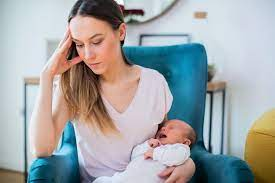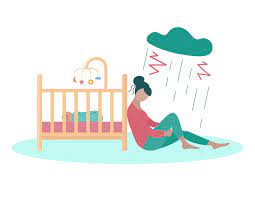New mothers can sometimes suffer from what is known as postpartum depression. If you’re feeling anxious or depressed after giving birth, this article can help you understand the symptoms and the treatments available to help you get back on your feet.

Depression after childbirth occurs when the mother experiences a sudden and dramatic drop in her hormones, including thyroid hormones. During this time, she may also experience sleep deprivation, anxiety, and loss of control. It can interfere with bonding with her baby, affecting feeding and sleeping, and resulting in developmental disorders. Ultimately, it can affect the family and the mother’s ability to care for her baby.
In addition to the symptoms of postpartum depression, other factors that may contribute to the condition include physical and social changes after childbirth, worries about parenting and changes in relationships. It’s important to seek help as soon as you notice these symptoms, since they can signal a broader problem. For example, if you think about harming yourself or attempting suicide, you should talk to your health provider immediately. Also, it’s important to note that pregnancy hormones are linked to the development of depression. The hormone levels return to their pre-pregnancy levels within three days. For professionals wanting to know more, consider Mental Health Training Courses from Tidal Training

If you think you may be suffering from postpartum depression, it’s important to seek medical attention as soon as possible. While the symptoms of postpartum depression can be hard to recognise and treat, the early diagnosis and treatment can prevent long-term health complications. Early intervention is essential for a mother’s emotional health and the health of her baby.

